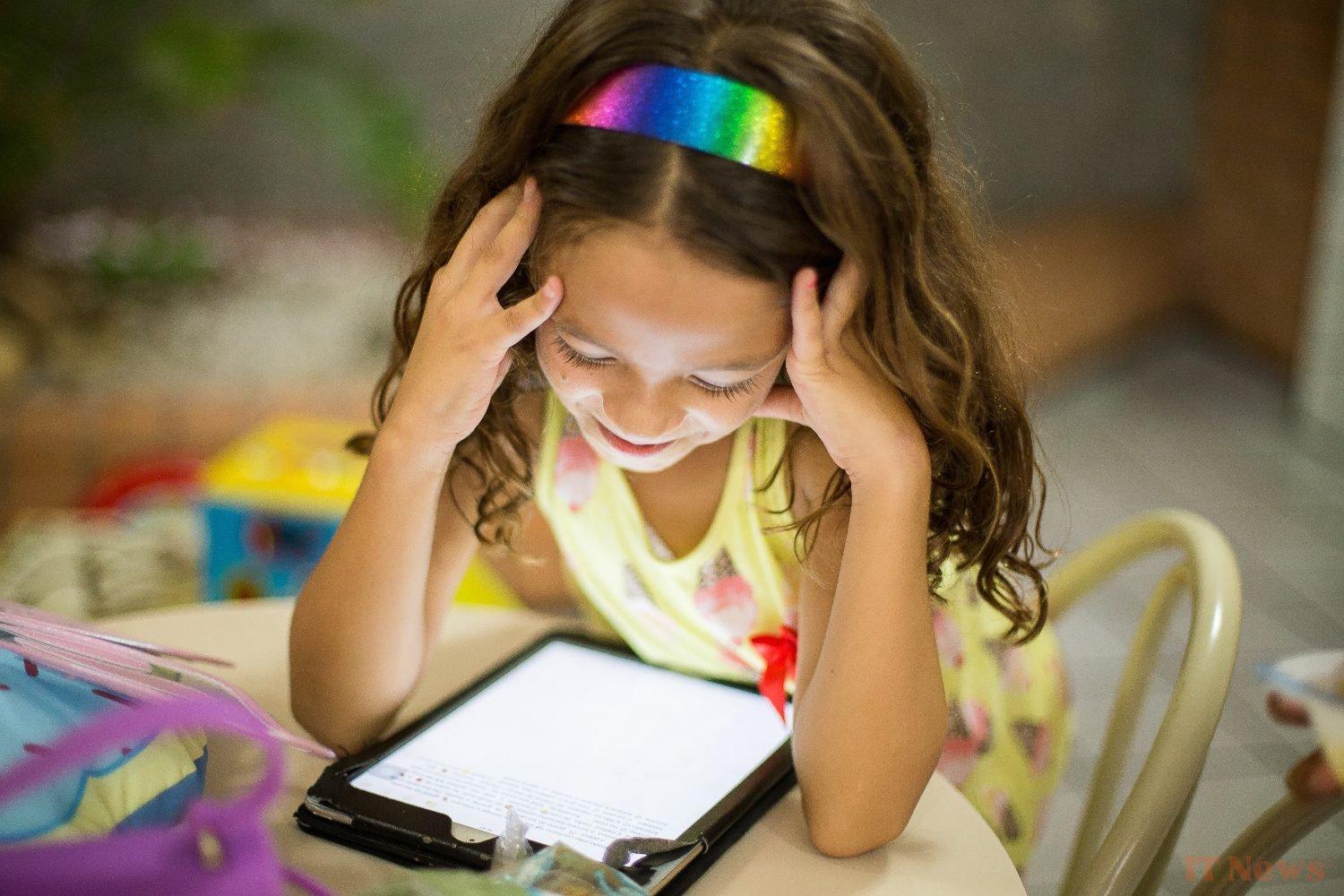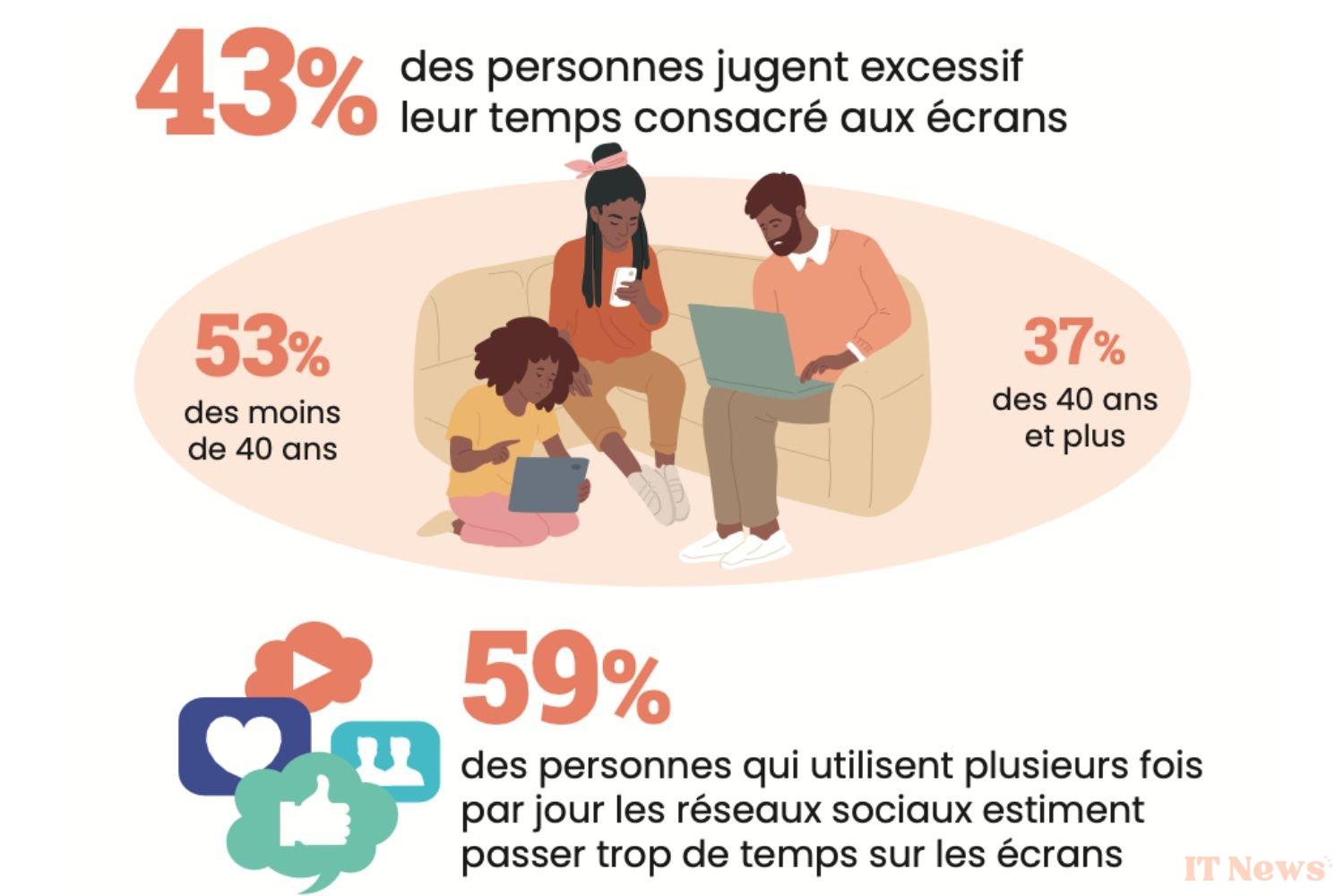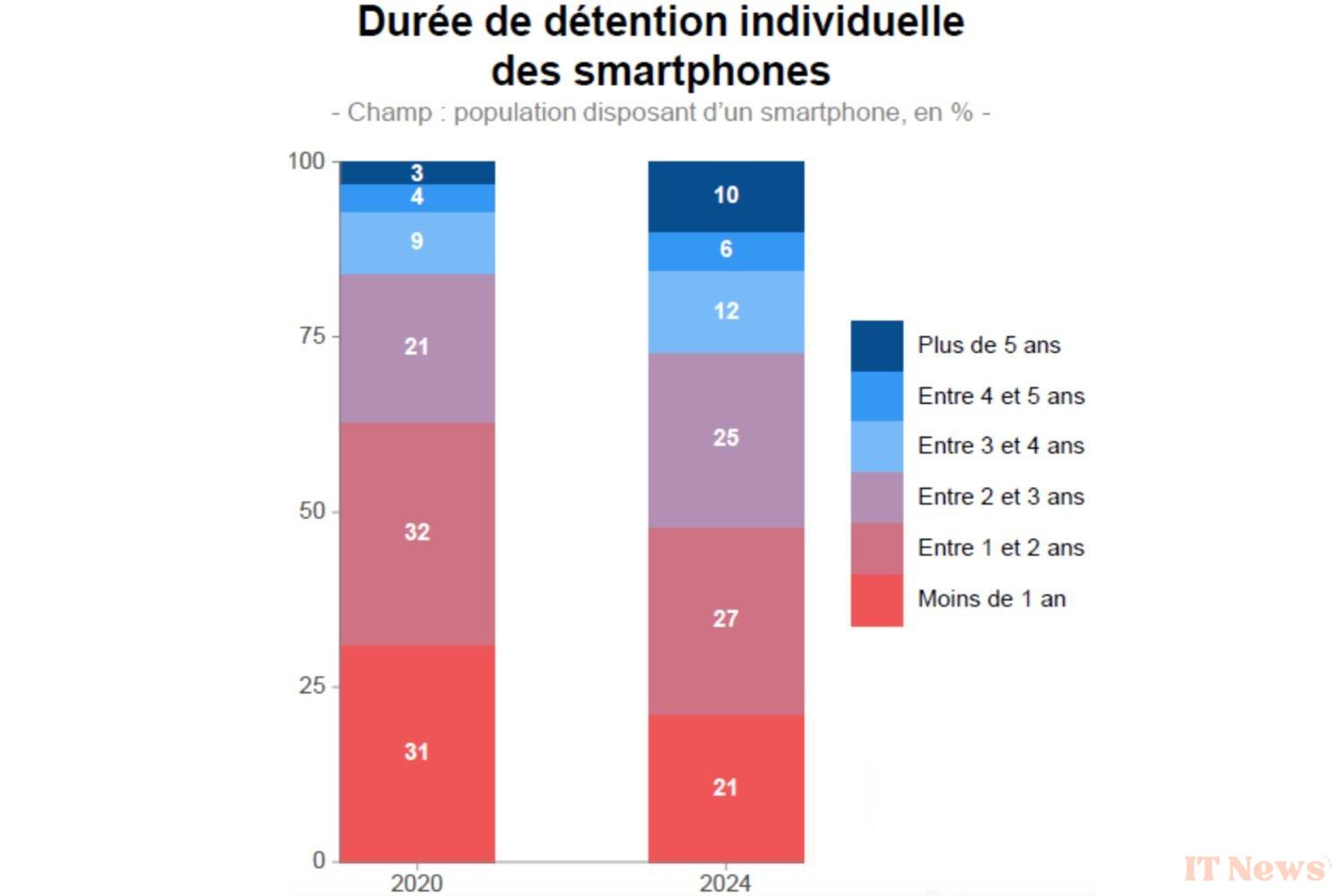"Five hours of screen time is five hours too many": as every year, the Digital Use Barometer allows us to take stock of our use of digital technology. For this 25th edition published Wednesday, March 19, nearly 4,066 people, residing in metropolitan France, were interviewed online and by telephone by Arcep, the telecoms regulator, Arcom, the audiovisual regulator, the Research Center for the Study and Observation of Living Conditions (Crédoc), the General Economic Council and the National Agency for Territorial Cohesion. Here are the data that most struck us.
One in two French people consider that they spend too much time in front of screens
First observation: the French have increased their screen time for personal use, outside of work hours. This is enough to bring us into the era of "digital addiction," acknowledged Arcep President Laure de la Raudière on Wednesday, March 19, during a press presentation. Now, 4 out of 10 French people spend more than three hours a day in front of screens, and for half of them, or 2 out of 10, the figure rises to five hours.
For younger people, this trend is even more marked: half of 12-17 year-olds, or one in two young people, spend more than five hours a day on their smartphone. "Five hours a day is five hours too many," stressed Clara Chappaz, Minister of AI and Digital Affairs, during the barometer presentation. For this barometer, the French were also asked about their own perception of the time spent on their smartphones and computers. For more than four out of ten people, this is an excessive amount of time.
The people who report problematic content the most are… young adults
Another fact that could contradict stereotypes: young adults are the ones who report inappropriate comments or accounts the most. In 2024, three-quarters of 18-24 year-olds used social media reporting tools.
Among 25-39 year-olds, it's 62% – a much higher proportion than their elders, who are not necessarily aware of these tools. Only 29% of 60-69 year-olds and 20% of those over 70 reported inappropriate content last year.
Information on the carbon footprint of smartphones: 6 out of 10 French people are not aware of it
The barometer also focused on smartphone users' access to certain mandatory information. Starting with the carbon footprint linked to data consumption and their device: there are still 6 out of 10 French people who are not really aware of this data.
Since the Agec law (the anti-waste law for a circular economy), operators have been required to inform their customers of the carbon footprint of their digital data consumption. According to the barometer, 62% of French people are still unaware that such information is available. Of the 38% who were well informed, a third of them do not consult this data, and another third explain that it does not encourage them to reduce their data consumption.
Internet users do not (for the most part) change the default browser on their smartphone
Another issue related to access to certain information: eight out of ten smartphone owners use the browser pre-installed on their smartphone. Only 31% of users report having been informed or offered to change their mobile browser, a relatively low figure given the DMA. The Digital Markets Act, the European regulation on digital markets, requires smartphone manufacturers to inform their customers of this possibility of switching. Of those who were informed, approximately a quarter reported having actually changed browsers. This represents 8% of the total population using mobile services.
On the cloud side, it is often the hosting service attached to their email inbox that is used. Among the 50% of users using these services, 41% of users of a free cloud space and 25% of those using a paid service say they have chosen the option offered by default – such as the one integrated into their smartphone’s operating system or other associated services – write the authors of the barometer.
19% of 18-24 year olds use their mobile connection to access the Web
In terms of internet connection, 9% of French people do not have a box subscription and exclusively use their mobile plans to access the Web. Note that this proportion is higher among younger people, since it concerns 19% of 18-24 year olds (+2 points compared to 2023, and +9 points compared to 2020) and 15% of 25-39 year olds (+7 points compared to 2020).
On this point, package offers with unlimited GB are often not actually used. While the share of 100 GB package holders has more than doubled in four years, rising from 15% to 32%, two-thirds of mobile package users never or only occasionally use their entire package. Each month, nearly 7.5 GB of mobile data is consumed on average, which represents a 10% increase compared to last year.
The French are replacing their smartphones less "for pleasure"
The last lesson from the barometer that caught our attention: we are keeping our smartphones longer. In 2024, only 20% of users changed their smartphone while it was still functional, compared to 25% in 2020. More than a quarter of mobile phone owners have had it for three years or more: only 16% did so four years previously.
And when the smartphone is replaced, it is more of a necessity (for 70% of them) than a "pleasure" purchase (for 21%, -4 points). The purchase of refurbished phones is not increasing much: of the mobile phone market in France, only 21% are refurbished phones, 76% having been purchased new – percentages that have changed little in recent years (+1 point in one year).
Source: Digital Barometer 2025





0 Comments